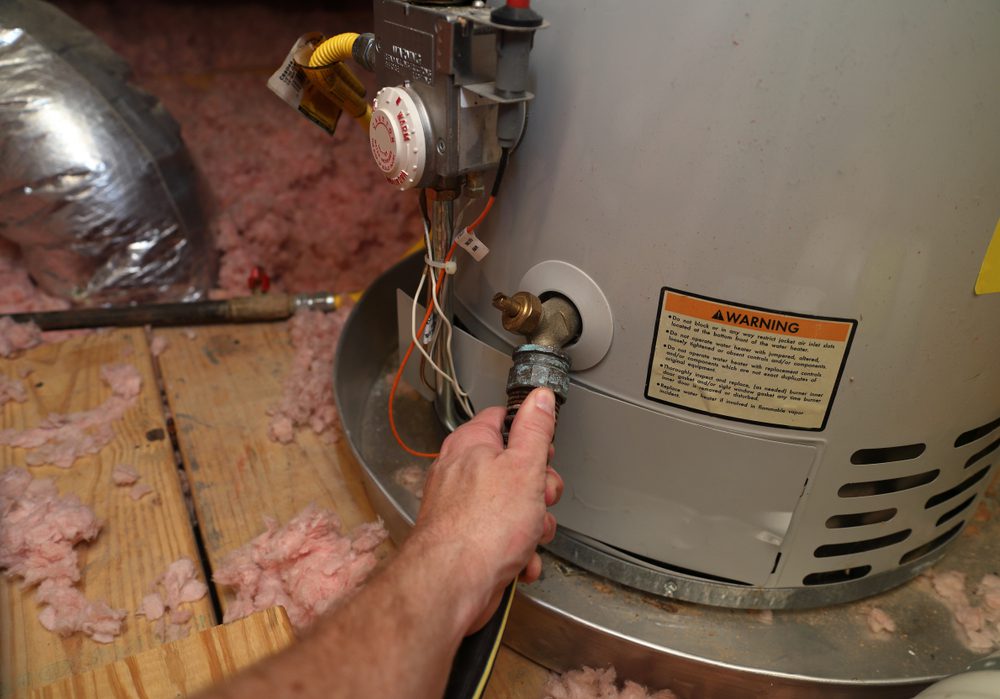Methods to Address the Common Water Heater Emergency Challenges
Methods to Address the Common Water Heater Emergency Challenges
Blog Article
The content in the next paragraphs involving The Importance of Water Heater Maintenance is without a doubt remarkable. Read it yourself and decide what you think about it.

A water heater is among one of the most essential basic appliances that can be found in a residence. With hot water heater, you do not require to go through the stress of home heating water manually every time there is a need to wash, wash, or the meals. There is always a possibility that your water heating unit would act up as with many mechanical tools.
It is very important to keep in mind any type of little breakdown as well as tackle it promptly before things leave hand. Many times, your hot water heater starts to malfunction when there is an accumulation of sediments as a result of continual usage. As a safety measure, regular flushing of your water heater is suggested to prevent debris accumulation and protect against practical failing.
Typical water heater emergencies and also how to manage them
Insufficient hot water
It might be that the water heating system can not support the warm water demand for your apartment or condo. You could update your water heating unit to one with a bigger capacity.
Changing water temperature.
Your water heater can start creating water of various temperatures typically ice hot or chilly hot. In this scenario, the first thing you do is to ensure that the temperature level is set to the desired degree. If after doing this, the water temperature maintains altering during showers or other tasks, you could have a faulty thermostat. There may be a need to change either the home heating or the thermostat device of your hot water heater.
Leaking hot water heater storage tank.
In this scenario, you need to transform off your water heating unit, permit it to cool down, and very carefully look for the source of the trouble. At times, all you need to do is to tighten a few screws or pipe connections in situations of small leaks. If this doesn't function as well as the leak persists, you might need to utilize the services of a service technician for an ideal substitute.
Discolored or odiferous water
When this takes place, you need to know if the problem is from the container or the water source. If there is no funny smell when you run cold water, after that you are certain that it is your hot water heater that is malfunctioning. The stinky water can be triggered by corrosion or the accumulation of germs or sediments in the water heater tank. Once you see this, you can try flushing out your container or replacing the anode if the issue lingers. The function of the anode is to clean bacteria from your storage tank. Because the anode pole substitute calls for a comprehensive knowledge of your water heating system, you will certainly require the help of a specialist.
Final thought
Some house owners overlook little warning and minor faults in their water heater device. This just causes additional damage and a feasible total malfunction of your home appliance. You must manage your water heater mistakes as quickly as they come up to avoid even more expenses and unneeded emergency troubles.
With water heating units, you don't require to go with the anxiety of heating water by hand every time there is a demand to take a bathroom, do the laundry, or the meals. It may be that the water heater can't support the warm water demand for your apartment or condo. Your water heating system could start generating water of various temperature levels normally ice scalding or cold hot. If there is no funny smell when you run cool water, then you are particular that it is your water heating unit that is malfunctioning. The odiferous water can be created by rust or the accumulation of bacteria or sediments in the water heating unit tank.
Water Heater Burst: Why This Happens And What To Do Next
Water Heater Explosion Warning Signs
Since storage water heaters are made of metal and store large volumes of heated water, they carry an increased risk of leaking or even exploding as they begin to rust at the fittings and seams over time. If the thermostat controlling the water temperature within the tank is faulty, or if mineral buildup inside the water heater prevents the thermostat from sensing the water’s temperature correctly, the water could become overheated. This will expand its volume within the tank, causing it to press at the tank’s fittings and seams. If these fittings and seams are rusted or corroded, the pressure could result in a leak or even an explosion.
Here are some risk factors and warning signs of an increased risk of water heater leak or explosion:
Your water heater is more than 10 years old. Your water heater makes clanking, banging or rumbling noises as it heats up, indicating that sediment has built up and hardened inside the tank. There is visible rust on the outside of the water heater, especially located at the pipe fittings or the seams that run down the tank. There is rusty water coming from your water heater, indicating that there may be rust building up inside. Your water heater is leaking, which could indicate either a crack somewhere in the tank or a malfunctioning temperature-and-pressure (T&P) relief valve. What To Do When Water Heater Leaks
If you find water dripping or seeping out of your water heater, or pooling around it, it means your water heater is leaking. If you find a leak, it may be best to call a plumbing professional to diagnose the problem and determine how best to handle it. If you choose to tackle it on your own, there are a few things you can do.
TURN OFF THE POWER
Next, shut off the power to the hot water tank at your home’s electrical breaker box. If you don’t shut off the power, the heating elements within the tank could continue to stay hot, which could pose a fire risk.
If you have a gas-powered water heater, you’ll also need to shut off the gas line leading into the tank.
FIND THE LEAK
Now it’s time to determine where the leak is coming from. Likely locations are the T&P valve, the drain valve or one of the pipes or fittings that feed into the top of the tank. If you see any rust or corrosion on the outside of your water heater’s tank, pipes or fittings, these could also be the source of the leak.
REPAIR THE LEAK
Once you determine the source of your water heater leak, you’ll have a better idea of what steps you need to take to fix the problem. It may be a simple fix—such as using a wrench to tighten fittings or replacing the T&P valve—but it may be something more complicated. You may even need to drain the tank, remove the water heater and install a new one.
https://www.abchomeandcommercial.com/blog/water-heater-burst/

As a devoted reader on Warning Signs You Need Water Heater Repairs, I thought sharing that topic was a great idea. Sharing is caring. You just don't know, you may just be doing someone a favor. I praise you for your time. Please check our blog back soon.
This Resource Report this page